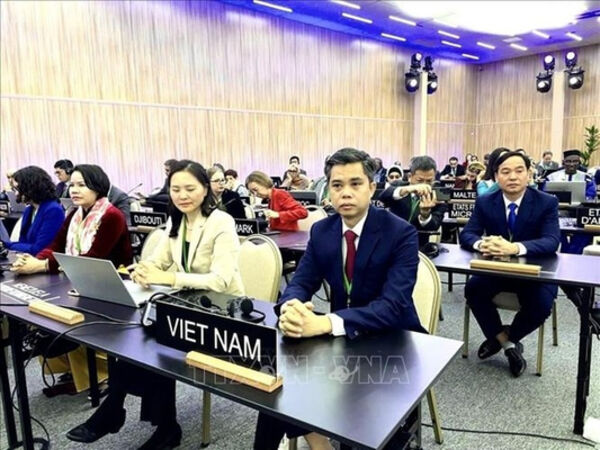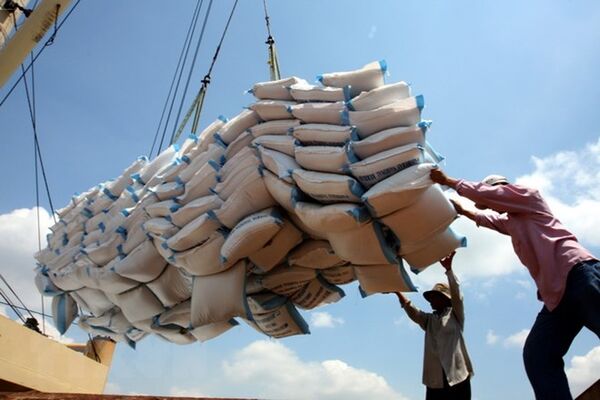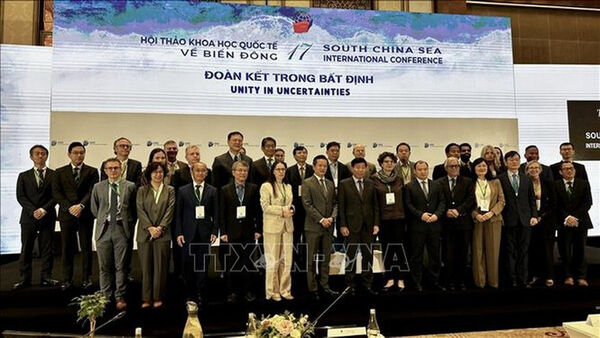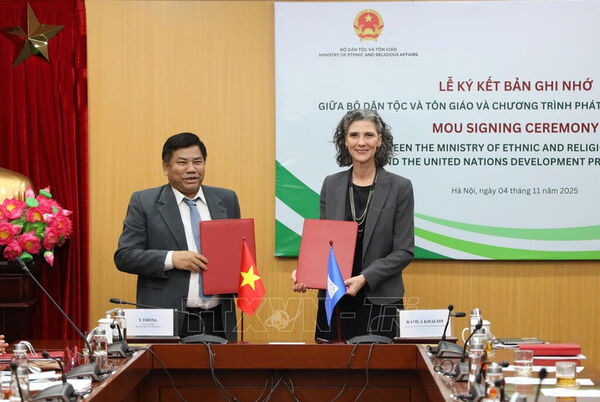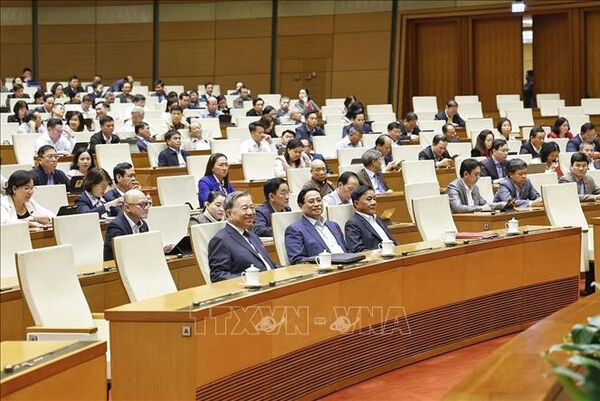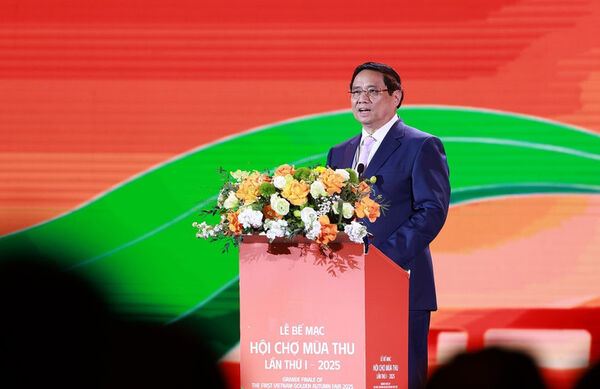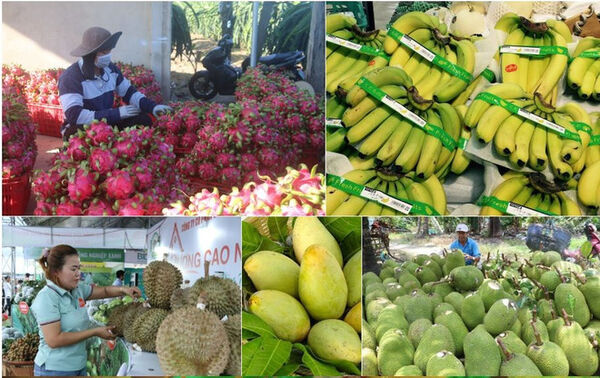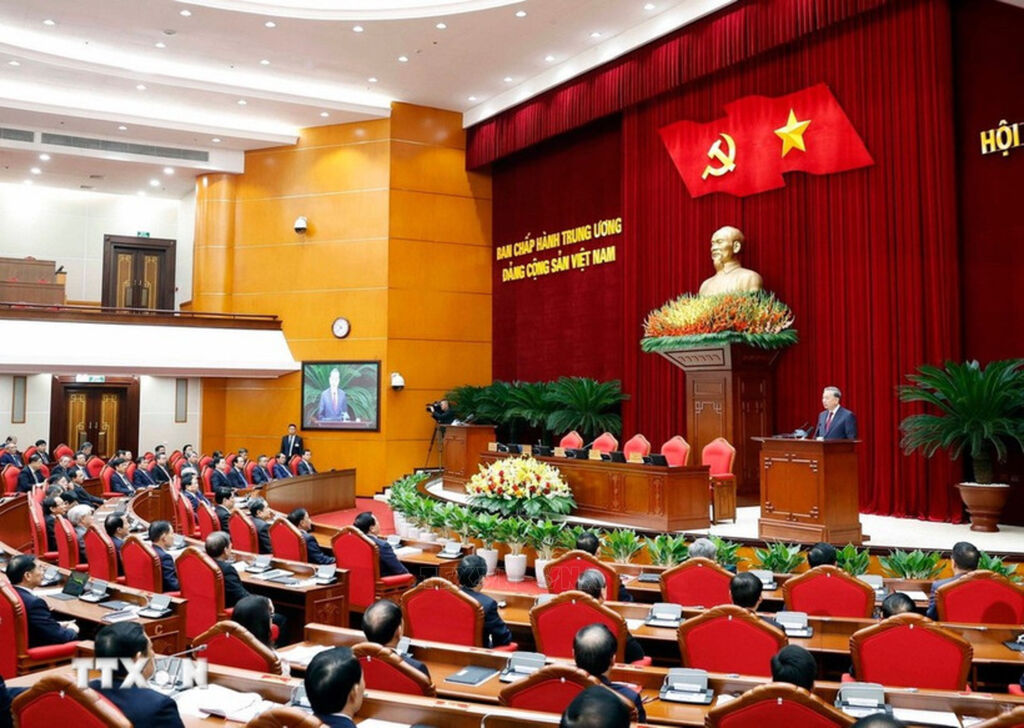 |
| Party General Secretary To Lam delivers the closing remarks at the 14th plenum of the 13th Party Central Committee on November 6 morning. (Photo: VNA) |
Hanoi (VNA) – The 14th plenum of the 13th Party Central Committee concluded on November 6 after two days of discussions, completing its agenda with high consensus and quality outcomes.
In his closing remarks, General Secretary To Lam stated that during the two-day meeting, the committee reached important decisions, including consensus on the number and composition of members for the Politburo and Secretariat of the 14th tenure, personnel recommendations for these bodies, and other senior positions of the Party and State. The committee also reached consensus on preparations for the 14th National Party Congress.
He emphasised that the Party Central Committee held open and thorough discussions with high unanimity on the personnel proposed for the next-tenure Politburo and Secretariat. The Politburo and the Subcommittee for Personnel Affairs of the 14th National Party Congress were tasked with refining the personnel plans in line with the orientation and process for the 14th tenure, to be submitted to the 15th plenum for decision.
The committee also approved the draft agenda, working regulations, and election rules for the upcoming congress, and authorised the Politburo to incorporate members’ feedback and finalise the drafts for submission to the 14th National Party Congress.
The Party Central Committee reviewed reports on the performance of the 13th tenure’s leadership bodies, the implementation of their working regulations, and the key issues resolved by the Politburo since the 13th plenum. It assigned the Politburo to further refine and hand over these documents to the next tenure for review and necessary revisions.
The Politburo was also directed to oversee the drafting of congress documents, incorporating feedback from political organisations and the public ahead of the 15th plenum and the 14th congress.
General Secretary Lam noted that despite global and domestic challenges, natural disasters and pandemics, the Party Central Committee, its Politburo and Secretariat of the 13th tenure have remained united, exemplary, and steadfast in the Party’s policies. They have steered the country to major, comprehensive, and breakthrough achievements, laying the foundation for future development.
He highlighted the vigorous implementation of Party resolutions, particularly Resolution 18 on streamlining the political system’s organisational apparatus, which was completed five years ahead of schedule.
The Politburo issued seven key strategic resolutions (Nos. 57, 59, 66, 68, 70, 71, and 72), forming an essential political and legal basis for achieving the country’s long-term development goals, including sustained double-digit growth and the two centenary objectives.
The General Secretary acknowledged certain shortcomings, such as the slow institutionalisation of Party resolutions, inefficiencies in state management, delays in public investment disbursement, and lingering social and economic difficulties in some areas. He attributed these mainly to subjective causes, particularly limited initiative and decisiveness among some Party committees and leaders.
He cited the restructuring of local administration system into a two-tier one and reorganisation of administrative units at the provincial and communal levels as a standout reform, opening new space and opportunities for national development. He called for stronger efforts to ensure the two-level local administration model operate efficiently, meeting the three key objectives of maintaining peace and stability, fostering sustainable growth, and improving people’s wellbeing.
Looking ahead, the Party chief urged the entire political system to continue enhancing the effectiveness of the two-tier local government model, clarifying inter-level responsibilities, strengthening decentralisation with oversight, and promoting digital governance. He stressed the principle of local autonomy with accountability, guided by transparency, efficiency, and service to the people.
He called on Party Central Committee members to demonstrate greater responsibility towards the nation and the people, effectively implement the resolutions of the 13th Party Congress and the 14th plenum’s conclusions, and contribute to the success of the upcoming 14th National Party Congress.
The General Secretary also drew attention to the complex developments of storms and floods, particularly Typhoon Kalmaegi expected to hit the central and Central Highlands regions within the day, urging all localities and relevant ministries to prioritise the protection of lives and property, strictly follow the “four-on-the-spot” principle, and mobilise all resources to support affected areas./.
